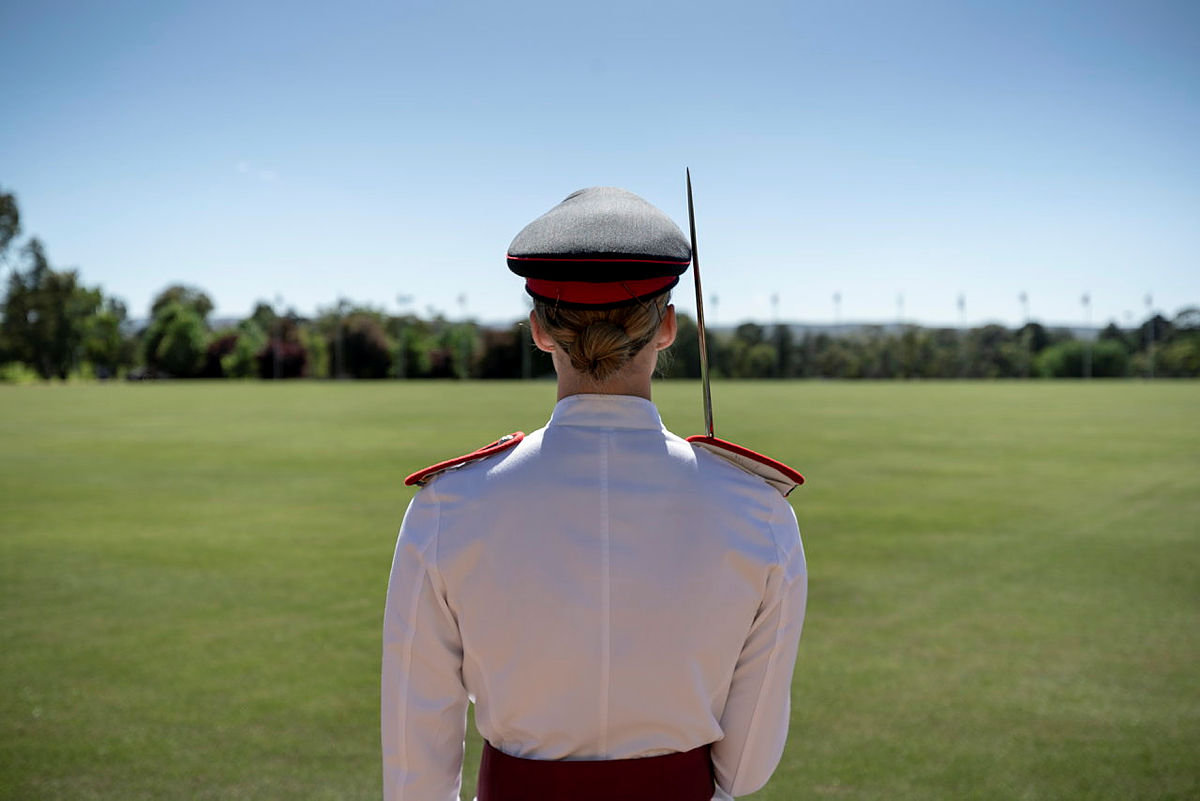My family would assure you that my cooking skills do not inspire confidence. But 2022 was the year that changed that.

My first attempt at baking bread left much to be desired. After acquiring my parent’s old bread maker, a quick run to the shops, and the adventure began. Over four hours and too much yeast later, I had an overwhelming pile of bread-like substance on my kitchen bench.
This cooking failure compounded an already tough week of research, and while cleaning the bench (and the floor) I could not help but draw the parallels in my bread-making and my honours-research skills.
Choose the best ingredients: Setting yourself up for success
At the end of 2021, I applied to return to the Australian Defence Force Academy to complete my Honours Year in Computing and Cybersecurity.
Throughout the application process I received mixed opinions from staff, friends and mentors on continuing my study. It ranged in the extremes from ‘it will ruin your Lieutenant experience’ to ‘it will be one of your career highlights’. All closed with the sage advice of ‘do what you want to do’, though knowing what I wanted was more difficult than I thought. After four years in military training, I had been institutionalised to adhere to command direction – all I seemed to be sure of at this point was that uncertainty was an opportunity for growth.
Nonetheless, the application was submitted and four months later I was informed by my OC that I had been ‘accepted to study the cyber thing next year’. Just like when my mother handed me the bread maker, I was excited and ready to embrace my year of study and take the opportunity that the Army had given me.
I was not prepared for what hit me next.
The transition to full-time study post Royal Military College – Duntroon (RMC-D), and more specifically research, came with an unexpectedly tight learning curve that left me overwhelmed, with flour covering the floor. Learning to bake hid my own mixture inside of me; of imposter syndrome and an unhealthy weight placed on staff and supervisor validation. My intellect was tested as what I thought I knew to be constructive criticism quickly became something else altogether.
What I hadn’t realised was how important these feelings were to my research journey.
The first attempt will never be the best: Learning from criticism
Solely self-directed learning forced me to re-evaluate my learning habits. The most significant ‘lesson learned’ was how to take criticism from a professional (not just a personal) standpoint. I thought I knew tough feedback after RMC-D but academic critique was brutal. A change in me was required to recognise that this criticism affords me an advantage and offers me excellent insight into my gaps and strengths.
One key piece of advice, passed on from my supervisor, is to focus on the process, and this advice was not limited to my research. Bread has a method too. By focussing on the process, I built a skillset that includes advanced critical reasoning, nuanced communication skills, and an understanding of self, separate from my work environment and my identity as an Army Officer. As it turns out, my military service is more than a uniform – and after four years listening to higher ranks speak about how important it is for Junior Officer’s to expand their capacity to think critically and solve problems, I am satisfied that my Honours year has done exactly that.
Deciding to bake bread: Advice for higher degree research
For those interested in pursuing Honours or Higher Degree Research in a specialist field I offer this unsolicited advice:
- Seek advice from your mentors but be empowered to make your own decision.
- Settle into feeling overwhelmed because that is where the true learning occurs.
- Learn how to take criticism…fast. It is invaluable.

Bottom line – I highly recommend this experience. The value of an Honours year exceeds that of gaining technical expertise. My Honours year forced me to confront the way I internalise criticism, communicate concerns, and handle professional relationships – valuable lessons that can only serve to improve the way I lead in years to come.
I want to assure you – I understand the privilege of my position. It is a rare opportunity to study full-time and complete an Honours year whilst serving in the Australian Defence Force. And that is not lost on me.
As with bread-making, sometimes we all need to be put under pressure. My second bread attempt was improved, and my repertoire of breads has now expanded to include garlic, herb, banana, and chocolate. It is achievable if you focus on the process.
About the author: Bridget Free graduated from the Royal Military College – Duntroon in 2021, going on to complete an Honours Year with the Australian Army Research Centre (AARC). Her research focussed on Artificial Intelligence and Machine Self-Reflection where she contributed to the field of Machine Education by addressing how machines provide feedback to teachers. As a Signals Corps Officer, Bridget is looking forward to experiencing broader Army, and hopes this reflective piece will inspire others to pursue higher degree research.

